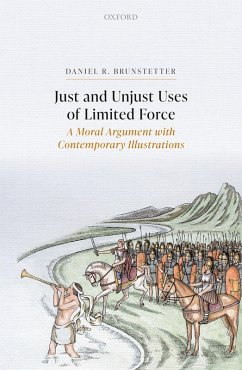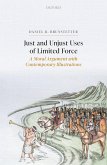Limited force is different than war: different in scope, strategic purpose, and ethical permissions and restraints. No-fly zones, limited strikes, Special Forces raids, and drone strikes outside 'hot' battlefield have been at the nexus of the moral and strategic debates about just war since the fall of the Berlin Wall but, with the exception of drones, these aspects of the modern arsenal have remained largely undertheorized. Just and Unjust Uses of Limited Force fills that gap by revisiting the major wars animating contemporary just war scholarship (Kosovo, Afghanistan, Iraq, the drone 'wars', and Libya) through the lens of limited force and drawing insights from the just war tradition. Looking at these contemporary examples, the book teases out an ethical account of force-short-of-war. It covers the deliberation about whether to use limited force (jus ad vim), restraints that govern its use (jus in vi), when to stop (jus ex vi), and the after-use context (jus post vim). While these moral categories parallel to some extent their just war counterparts of jus ad bellum, jus in bello, jus post bellum, and jus ex bello, the book illustrates how they can be reimagined and recalibrated in a limited force context, while also introducing new principles specific to the dilemmas associated with escalation and risk. As the argument unfolds, the reader will be presented with a view of limited force as a moral alternative to war, exposed to a series of dilemmas regarding when and how limited force is used, and provided with a more precise and morally enriched vocabulary to talk about limited force and the responsibilities its use entails.
Dieser Download kann aus rechtlichen Gründen nur mit Rechnungsadresse in A, B, BG, CY, CZ, D, DK, EW, E, FIN, F, GR, HR, H, IRL, I, LT, L, LR, M, NL, PL, P, R, S, SLO, SK ausgeliefert werden.









